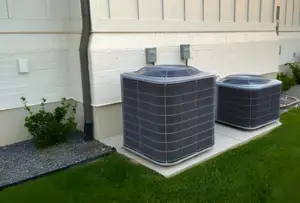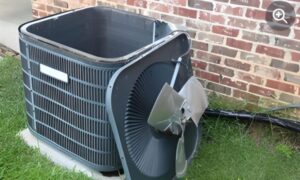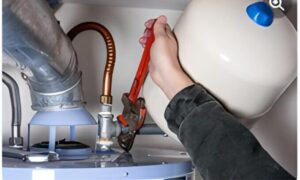Welcome to our comprehensive discussion on the secrets to achieving optimal HVAC maintenance.
As a responsible HVAC system owner, you understand the importance of regular servicing to ensure efficient performance and prolong the lifespan of your equipment.
But what factors should you consider when determining the frequency of maintenance? In this article, we will uncover these secrets, exploring the impact of system type and size, equipment age and condition, location and environment, occupancy and usage, and the significance of customized maintenance plans.
By the end of this discussion, you'll have a deeper understanding of how to maintain your HVAC system effectively and efficiently.
So, let's dive in and uncover the mysteries behind optimal HVAC maintenance.
Factors Affecting Maintenance Frequency
Factors affecting maintenance frequency can vary depending on the type and size of the HVAC system, the age and condition of the equipment, the location and environment in which it is installed, the occupancy and usage of the space, and the individual's risk tolerance.
Different types of HVAC equipment require varying levels of servicing. For example, a single boiler heating system typically only needs an inspection and cleaning once per year, while complex chiller systems in large facilities require multiple inspections throughout the cooling system.
The frequency of maintenance also depends on the age and condition of the equipment. New HVAC systems generally require less frequent maintenance, while aging and unreliable equipment should receive more frequent attention.
Additionally, the location and environment play a role in maintenance frequency. Equipment located outdoors, such as on rooftops, requires more frequent cleaning due to exposure to elements like sun, rain, ice, and pollution. On the other hand, mechanical rooms require less frequent cleaning and maintenance.
The occupancy and usage of the space also affect maintenance frequency. Busy medical facilities require more frequent maintenance to ensure consistent conditions, while family homes or small businesses with low occupancy may only need maintenance once or twice a year. Spaces with high occupancy, like theaters, require more frequent maintenance due to increased heating and cooling loads.
Importance of Regular Inspections
Regular inspections play a crucial role in maintaining the optimal performance and longevity of HVAC systems. By conducting regular inspections, HVAC technicians can identify and address potential issues before they escalate into major problems. These inspections allow for proactive maintenance, ensuring that the system operates efficiently and effectively.
During inspections, technicians check various components of the system, such as filters, coils, fans, motors, and electrical connections. They also assess the overall condition of the equipment and measure performance parameters like airflow, temperature differentials, and refrigerant levels. Through these detailed inspections, technicians can detect any signs of wear and tear, leaks, or other abnormalities that may impact the system's performance.
Regular inspections also help in optimizing energy efficiency, reducing energy consumption, and improving indoor air quality. By identifying and rectifying any issues promptly, HVAC systems can operate at their peak efficiency, helping to lower energy costs and provide a comfortable environment for occupants.
Furthermore, regular inspections contribute to the overall longevity of the system. By addressing minor issues early on, technicians can prevent larger, more costly problems from occurring. This extends the lifespan of the equipment, reducing the need for premature replacements and saving money in the long run.
Impact of Equipment Age and Condition
The age and condition of HVAC equipment play a significant role in determining the frequency and extent of maintenance required to ensure optimal performance and reliability. New HVAC systems generally require less frequent maintenance, as they are built with modern technology and are less prone to breakdowns.
On the other hand, aging and unreliable equipment should receive more frequent maintenance to catch failing parts before they damage the entire system. Regular maintenance not only helps in identifying potential issues but also provides advance warning for potential system replacements.
This allows time for research and planning for replacement costs. By considering the age and condition of the equipment, HVAC maintenance can be tailored to ensure the longevity and efficiency of the system.
Considerations for Location and Environment
In order to ensure optimal performance and longevity of HVAC systems, it is important to take into consideration the specific location and environmental factors that can impact their operation.
The location of the equipment plays a crucial role in determining the frequency of cleaning and maintenance. HVAC units located outdoors, such as on rooftops, are more susceptible to elements like sun, rain, ice, and pollution, which can affect their performance and efficiency. On the other hand, mechanical rooms may require less frequent cleaning and maintenance.
Additionally, the quality of air inside the space is an important factor to consider. Poor air quality necessitates more frequent equipment checks. Industrial facilities and spaces exposed to vehicle exhaust also require increased maintenance.
Maintenance Based on Occupancy and Usage
Considering the impact of temperature, humidity, and air quality on occupants' health, the frequency of HVAC maintenance varies based on occupancy and usage.
Busy medical facilities, for example, require more frequent maintenance to ensure consistent conditions for patients and staff. On the other hand, family homes or small businesses with low occupancy may only need maintenance once or twice a year.
Spaces with high occupancy, like theaters or concert halls, require more frequent maintenance due to increased heating and cooling loads. The goal is to maintain consistent and reliable conditions to meet the needs of the occupants.
Customized Maintenance Plans and Risk Tolerance
Customized maintenance plans and risk tolerance play a crucial role in optimizing the performance and longevity of HVAC systems. When it comes to HVAC maintenance, one size does not fit all. Each facility has unique requirements and priorities that should be taken into account when developing a maintenance plan.
Here are five important factors to consider when customizing your HVAC maintenance plan:
- System type and size: Different types of HVAC equipment require varying levels of servicing. Regular inspections help prevent downtime and identify potential issues.
- Equipment age and condition: New HVAC systems generally require less frequent maintenance, while aging and unreliable equipment should receive more frequent attention.
- Location and environment: Outdoor equipment requires more frequent cleaning due to exposure to elements like sun, rain, ice, and pollution. Poor air quality inside the space necessitates more frequent equipment checks.
- Occupancy and usage: Busy facilities and spaces with high occupancy require more frequent maintenance to ensure consistent conditions. Maintenance frequency depends on the impact of temperature, humidity, and air quality on occupants' health.
- Your risk tolerance: Customized maintenance plans can be created based on specific needs and situations. Contracts including parts and labor for any problems allow for budgeting in advance and eliminate unexpected repair costs.
Frequently Asked Questions
How Can Regular Inspections Help Prevent HVAC System Downtime?
Regular inspections help prevent HVAC system downtime by identifying potential issues before they escalate. By detecting failing parts early, maintenance can be scheduled to replace or repair them, preventing larger system failures and minimizing the impact on operations.
What Are the Potential Issues That Can Be Identified During Regular Inspections?
During regular HVAC inspections, potential issues that can be identified include failing parts, worn-out components, leaks, improper airflow, thermostat malfunctions, electrical problems, refrigerant leaks, and dirty filters. Timely identification of these issues helps prevent system breakdowns and ensures optimal performance.
How Does the Age and Condition of HVAC Equipment Impact the Frequency of Maintenance?
The age and condition of HVAC equipment impact the frequency of maintenance. New systems require less frequent maintenance, while aging and unreliable equipment should receive more frequent maintenance to catch failing parts and plan for potential replacements.
What Are the Specific Factors in the Environment That Can Affect the Performance of HVAC Equipment?
Factors in the environment that can affect HVAC equipment performance include outdoor location (requiring more frequent cleaning), exposure to elements, poor air quality indoors, and high occupancy in spaces (increasing heating and cooling loads).
How Does the Occupancy and Usage of a Space Impact the Frequency of HVAC Maintenance?
The occupancy and usage of a space impact the frequency of HVAC maintenance. Busy facilities with high occupancy require more frequent maintenance to ensure consistent conditions. Maintenance frequency depends on temperature, humidity, air quality, and occupants' health.
Conclusion
In conclusion, maintaining an HVAC system is crucial for its longevity and efficient performance. The frequency of maintenance is influenced by various factors such as system type and size, equipment age and condition, location and environment, occupancy and usage, and individual risk tolerance.
Regular inspections and customized maintenance plans are essential in identifying potential issues, ensuring optimal HVAC performance, and allowing for timely replacements. By considering these factors, one can achieve optimal HVAC maintenance and prolong the lifespan of the system.









